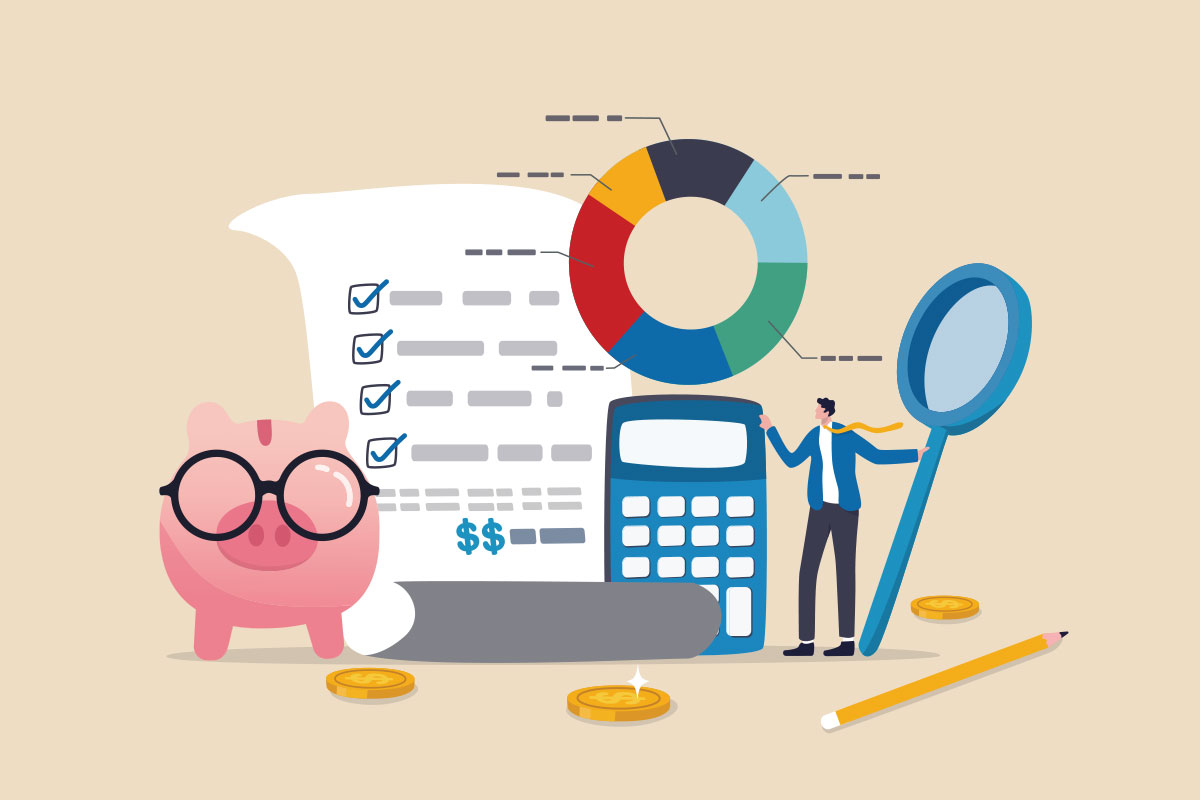Unless you have completed your time in this world, taxes are inescapable.
Granted, you can certainly try to skip out on paying the government what you owe, but the potential consequences when you’re caught (not if) are extreme — everything from surging debt to wage garnishment, tax liens, and even jail time.
May we offer, instead, a smart way to deal with taxes: Get way out ahead of the deadline and put a bow on your finances before the end of the year. That way, there are no surprises, and you can position yourself in such a way that your bank account stays happy.
“It’s always a good idea, especially if you’ve had anything change between 2022 and 2023, to get somebody to do a spot check of where you are,” says John Coleman, a certified public accountant and owner of Commonwealth Business Services, Inc. in Fredericksburg.

Proactive Planning
“You can avoid that, ‘Hey, you owe $18,000’ phone call if you just do some proactive planning before the year is over,” Coleman says. “The worst thing to do is to call me in January and say, ‘Hey, what can I do to save on my taxes?’ Because my response is always: ‘Well, call me in November or December because [there’s] not much I can do at this point.’”
It may sound obvious, but key things to keep in mind toward the end of the year are life events. Maybe you bought a house, added a family member, or had a big contract come through.
“It’s really a good idea just to get with your accountant and see where you are. And the closer the end of the year, the better, because you’ve got more hindsight. And then, as you get into the end of November, beginning of December, you’ve got the foresight to kind of know where things are hopefully going to shake out. Not necessarily true all the time. But hopefully,” Coleman says.
Retirement Contributions
According to David Henning, a tax principal at Virginia accounting firm YHB, one big way you can benefit your bottom line is through retirement contribution deductions.
“The only way, really, for W-2 employees to lower their overall tax situation is to consider working with their company’s 401(k). Or, if the company doesn’t have a 401(k), to look into Roth IRAs and regular IRAs, depending upon their income levels,” Henning says.
A retirement account contribution is “the only deduction you can get for paying yourself, at the end of the day,” he says. “To me, that’s a win-win. I am able to take a deduction without having to throw away money to do it.”

Charity Write-Offs
Henning cautions against relying on charitable deductions to lower your tax burden — if that’s the only reason you’re doing it. In short: You might not give enough.
“A lot of people, when they normally give to charities or churches or something like that, it doesn’t actually benefit them because they might not be over the standard deduction,” Henning says.
The standard deduction for 2023 is $13,850 for singles, $27,700 for married couples filing jointly.
“If you give, let’s just say, $8,000 a year to charity, that’s great, but you didn’t get any benefit for it because your standard deduction was higher than what that $8,000 itemized deduction would be,” he says.
There are ways to maximize charitable deductions.
One, according to Henning, would be to create a charitable fund, put a lump sum of money for the next few years into it (say $40,000), and then, over the next four or five years, dole it out. This way, you’ve created a charitable deduction for the first year, when you put your money into that fund, and then you can take advantage of the standard deduction in future years.

Kids’ Taxes
Another issue to pay attention to, specifically for parents, is your kids’ taxes. If a teen in your home had a summer job, it adds another layer of complexity to the tax cake.
Coleman says teenagers should not do their own taxes. He says teens will try to do their taxes on their phones. “They’ll claim themselves as a dependent, and it completely and totally messes the parents up,” Coleman says.
Tax paperwork — W-2s, 1099 forms, and anything else — needs to be handed over to the parents.
“A lot of folks, especially the teenagers, they will file their own returns. And it just — it creates a nightmare for us, especially the college kids, they’ll all get together and have a TurboTax party or something and claim themselves and it just creates a mess,” Coleman says.
Henning says one way kids can help their parents out in terms of taxes, other than not claiming themselves as a dependent, is to check the box that allows them to be claimed by someone else.
“Kids can absolutely make money. They should file returns to get the refunds back,” but check that box, Henning says.
Yet another concern over kids and taxes is that they may not know what certain tax thresholds are, especially if they aren’t W-2 employees.
Coleman says he’s seen a number of teenagers over the years who wind up with a 1099, where no taxes are withheld. They have not accounted for the self-employment tax, a rate of 15.3 percent.
“And so, they’re like, ‘Oh, I only made $4,000 this summer’ — but it was a 1099. And they don’t think they’re going to owe because it’s like, ‘Oh, the threshold for paying income taxes is $12,000.’ But that’s not the threshold for self-employment tax. It’s like $600. So they get surprised by that. And they wind up with a tax mess,” Coleman says.
Selling items like concert tickets through third-party vendors, including PayPal and Venmo, can mean people, not just teens, end up with an unexpected 1099. “It’s new,” Coleman says, particularly when it comes to concert ticket sales through Venmo.
In some ways, when it comes to the particulars of your taxes, the universal advice is that there is no universal advice.
“The answer to a lot of things is: It depends,” Henning says. “A lot of times, the answer differs for two people that could be standing in front of me with two different fact patterns. The answer could be different for each of them.”
But a few things are true across the board.
It pays to use a tax professional. Make sure you, your financial accountant, and your CPA are on the same page. And please: Don’t wait until the last minute to get your taxes in order.
Feature image, Nuthawut/stock.adobe.com
This story originally ran in our September issue. For more stories like this, subscribe to Northern Virginia Magazine.





